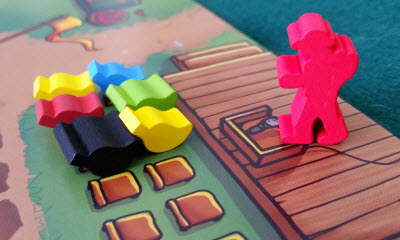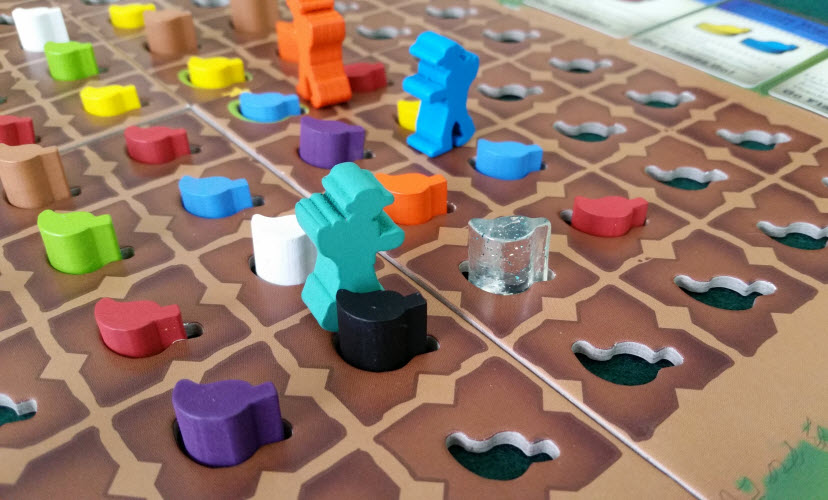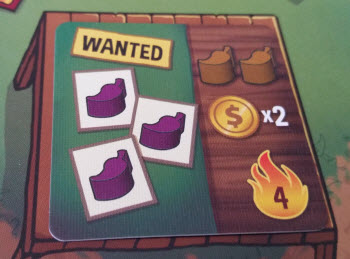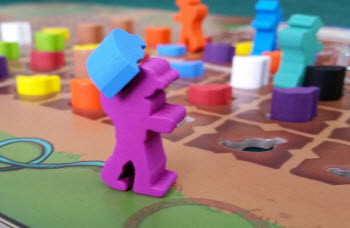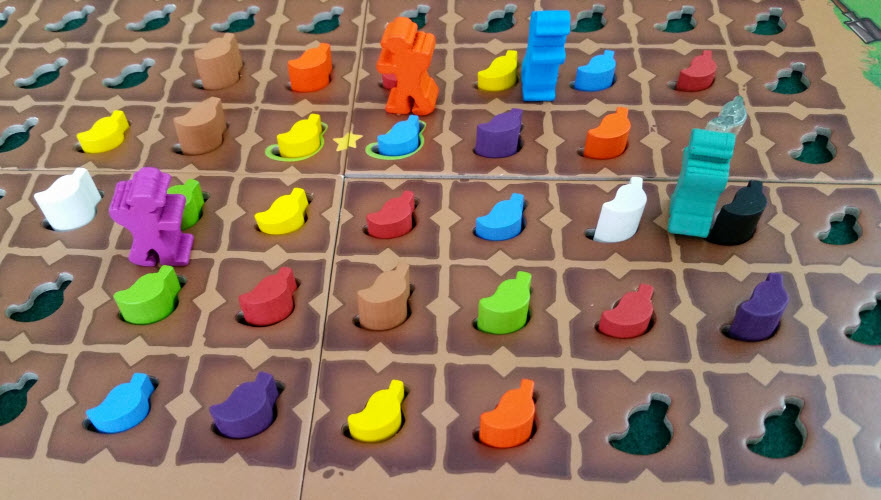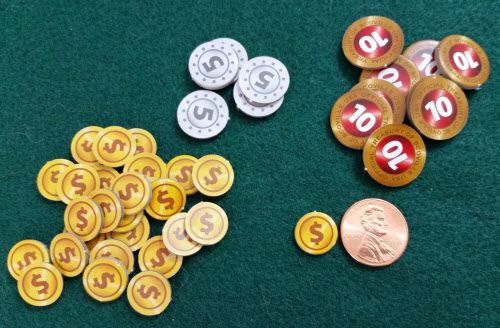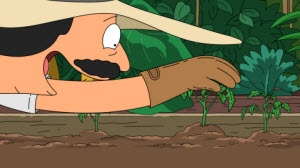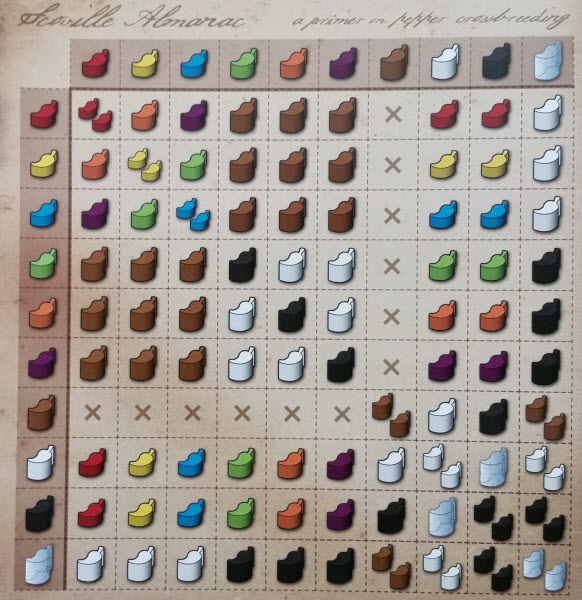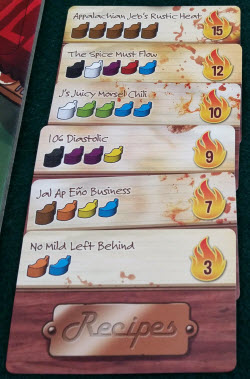Howdy All!
It’s time again for the annual Scoville Chili Cook-Off, so fire up those taste buds! We’re looking for local chili cooks to enter this year’s competition and really put the judges to the test. Maybe you’ll take home the 2015 Wilbur Trophy! We’re looking to have a roaring good time.
Highlights include:
Special Guest Judges
Live Music
Games For The Kids
And More!
4PM Saturday, July 18th at the Scoville Town Pavilion
Tickets are $10. All proceeds will go to the Scoville Community Center Restoration Project
For details or more information call Trish at 786-8455 ext. 3
The Premise
The town of Scoville was founded by a group of citizens who really, really, really liked peppers. The hotter, the better. Every year, the town hosts a festival for attendees to compete over who has made the hottest, spiciest peppers possible. As entrants in this contest, players must plant and grow the necessary peppers to attempt fiery chili recipes in the hopes of breaking the all-time Scoville record.
The Rules
Welcome to Scoville, a Resource Management game about planting, harvesting, selling, breeding and cooking peppers. Played on a central planting board, the game contains money, tiles, and ten different pepper piles. It also has three card types, being Auction, Market, and Recipe Cards; a number of each are revealed at the beginning of the game, depending on player size.
At the start of the game, each player is given a pepper privacy screen (trade secrets and all), a farmer meeple, a set of Bonus Action tiles, some money, a Breeding Chart, and three basic peppers (red, yellow, and blue). Two more basic peppers are chosen at random and placed in the starting pepper plots.
Scoville plays out over two segments, Morning and Afternoon, and is broken down into a series of rounds. Each round is comprised of four principal phases: Auction, Planting, Harvesting, and Fulfillment.
For the Auction phase of the first round, turn order is determined randomly. After that, each round players bid money to choose where in the turn order they’d like to fall.
Then, in turn order, players claim an Auction cards and procures the peppers presented. Afterwards, new Auction cards are revealed.
Next is Planting, where players plant peppers on the board’s various pepper plots. In turn order, each player must place one pepper from their supply onto the board adjacent to a previously planted pepper. If a player plants a pepper matching an available Award tile, they may claim it.
Once all players have planted, the Harvest begins. In reverse turn order, each player moves their farmer up to three steps from its previous position along the paths between the pepper plots. For every step the farmer takes between two populated pepper plots, the player consults the Breeding Chart and gains the result of those two peppers.
Finally comes the Fulfillment phase, where players in turn order can put those procured peppers to use by taking up to three different actions. These include:
- The Farmer’s Market: Choose and pay the pepper prerequisites of a Market card, receiving the depicted money, peppers, and / or VP.
-
The Chili Cookoff: Choose a Recipe and pay the peppers needed to prepare it in exchange for VP.
- Selling A Batch: Choose one color pepper and sell up to five of them, receiving $1 for every two matching peppers presently planted.
Finally, a new round begins. However, if the remaining number of Morning Market Cards is below the number of players, Scoville moves from the Morning Phase to the Afternoon Phase, swapping the respective Auction and Market decks.
If it is Afternoon and either the Market or Recipe piles are below the player size, it triggers a final round; if both are below the threshold, the game simply ends.
At that point, players convert money into VP, adding it to the value of their cards and tiles. The player with the highest VP has proudly proven themselves to be the most prodigious pepper practitioner.
Sadly, everyone else clearly isn’t ready for this spicy endeavor.
Prime Farmland
Most of history’s earliest board games were austerely made. For centuries, people crafted games with basic materials, from pebbles and sticks to items carved from stone, wood, or bone. From Go to Senet, Backgammon to Chess, such games spread across territorial and cultural boundaries, and they’ve been appreciated for generations.
In today’s era of hobby gaming, though, not only are there thousands of games to choose from, but the expectations of what people want in a game has evolved alongside the games themselves. Abstract tactical games like Chess still have their place, but many nowadays desire more than rudimentary function in their games, whether it’s deeper strategies, easier rulesets, better accessibility, coherent theme, or a host of other criteria.
Case in point: although much derided now, part Monopoly’s success was because it deviated from its progenitors and competitors by possessing the right mix of appealing visual aesthetics alongside (an albeit cursory) thematic purpose.
To stay relevant now, games must offer a package that catches – and holds – people’s attention.
Luckily, not only does Scoville accomplish this, but it does so a few different ways.
The most apparent of these attention-grabbing aspects are the game’s components themselves. From the first peppers gathered, it’s impossible to overlook that Scoville is a well constructed game. Scoville contains just a few card stacks and tokens, each of which are made of quality stock and laid out in a clean and organized manner. All of these pieces are conveyed in a straightforward way that avoids adding extraneous clutter to the board.
Yet the majority of Scoville’s physical presence is comprised of centralized pepper plots; this garden is far and away the most notable feature of the game. Each space on the garden section is indented, letting you add pepper-shaped pieces into them. Not only does this design choice work wondrously by providing stability to the board state in case of accidental table movement, it also creates a remarkably savory tactile experience. More importantly, it makes the game more memorable, as adding colorful peppers to these spaces is not only fitting, but players feel more invested than if they were merely moving little wooden cubes around.
Scoville is hardly the first game to use an indented board, but it does so in a such a resonant way that this portion of the game alone raises its caliber a notch or two on the Scoville Scale. Components alone won’t win a game a vaunted blue ribbon, but like a good chili recipe, it’s certainly an ideal ingredient.
Indeed, the only caveats to Scoville’s presentation are minor: the money could be slightly larger, there aren’t enough Breeding Charts in a six player game, and the farmer meeples have a tendency to fall down when situated along the paths where the board pieces fit together.
A Healthy Dose Of Showmanship
For years there has been a conception that a game could only be heavily strategic or highly thematic. However, a game like Scoville shows they don’t have be mutually exclusive. Scoville, like the peppers contained within, is a great example of a successful gaming crossbreed.
While it’s always evident that Scoville is a medium Euro-style game, it does so with a basic and well-rooted theme. Scoville’s integration of its pepper-growing premise with nearly every facet of its mechanics is commendable. In the Auction phase, for instance, bidding on turn order is represented as a school fundraiser (Go Flames!), and crossbreeding peppers for more potent ones is both fitting as a means of game progression as well as a realistic depiction of how you get to the truly hot stuff.
Plus, there’s that whole aspect of having peppers actually in the ground when your farmers come through the patch that ties the entire ensemble together in a masterful way. This level of flavor synthesis is easily one of the game’s biggest accolades.
That being said, there are a couple thematic mismatches. Namely, it is somewhat strange that the more common a pepper is on the farm, the more money you get for selling them. Selling yellow peppers net you $4 each if eight are on the board, but with only a single rare ghost pepper on the field, selling one in your possession nets you nothing. This makes selling rather counterintuitive. Given that money in Scoville is primarily only used to establish turn order, though, it doesn’t have a huge impact on the game.
To the same end, it’s also puzzling why competing farmers would all work out of a communal garden. Presumably farmers wouldn’t want to be wrangling over the choice peppers and would rather have their own land.
Nevertheless, much of Scoville’s strategy revolves around navigating this shared field to achieve your objectives while stymieing your opponents, and it works quite elegantly. So just let those Scovillians fight it out.
Though small quibbles, these points will give Immersionists pause. Scoville is very flavorful and decently thematic for a strategy game – which they’ll be the first to laud – but it also lacks a deeper narrative for them to latch on. This group generally has trouble getting invested in Euro games, and while Scoville appears to be an exception to that rule, don’t expect this to be a go-to game for them either.
Coincidentally, Architects have their own reservations for the exact opposite reasons. These folks love the progression that Scoville offers and will enjoy the game overall. They’d have just preferred their own plots to work unheeded. Yet since Scoville essentially requires that you work off one another towards the finish line, and it doesn’t reward stockpiling, there isn’t much reason to amass peppers beyond saving for a Recipe or a little late game cash. This will be a little disappointing to them.
Sampling The Cuisine
Scoville does such an impressive job integrating its attributes that its cheerful exterior is almost too good at masking that it’s ultimately still a game all about carefully laden moves. Much like the pepper plants themselves, there’s a lot going on beneath the surface. Scoville isn’t deceptive; rather, it gives off such a good presentation that it has the potential to attract people who may not realize how much strategy is actually involved.
Socializers are a prime example of this. Due to its bright appearance its family-friendly vibe, Scoville is easily a game they’d take notice of. Unfortunately, between 90 minute playthoughts, a low degree of player interaction, and the amount of focus that’s required each round (it doesn’t give you a 10 x 10 chart for nothing), they won’t find this game as appetizing as they’d think.
Similarly, Scoville will be too much of a slow burn for resident Daredevils. While making a single wrong move isn’t going to cost you the game, the margin for error isn’t incredibly high. It doesn’t take much for a series of missteps to cost you a valuable Recipe or two, and in this tight-scoring game, the more you settle, the lower your chances are of winning. Much like real farming, planning is an absolute necessity in Scoville, and it doesn’t leave much room for unorthodoxy.
Tacticians on the other hand will be lining up to enter this spicy contest. With the ability to methodically plot along, there is ample room for them to calculate their ideal moves. Although attaining valuable Recipes is the obvious path to victory, how you get there is up to you.
Strikers will have a similar mindset but may be slightly less enthusiastic. This group will particularly like planting peppers to block their opponent’s intentions, and the game’s low-luck environment means they can focus on their goals without being randomly derailed. However, because Scoville is closely-contested, spending too much time on stopping your opponents from doing things can cost you as much as them. There are no VP rewards for being antagonistic.
The Takeaway
With all of the entries in, the judges have voted: Scoville is a savory strategy game with a spicy theme and very charismatic attitude. The game’s colorful exterior ensures that it’s approachable and attention-worthy, its components are quite palatable, and its concise rules keep it a fundamentally sound game with decent replayability. Scoville exudes a crisp but modest game layout that offers up an air of flavorful fun without sacrificing anything in the process, which is not an easy accomplishment. Carefully cultivated, Scoville is truly one cooked up gaming recipe that has a nice kick up front and quite agreeable aftertaste.
Scoville is a product of Tasty Minstrel Games.
Cardboard Republic Snapshot Scoring (Based on scale of 5):
Artwork: 4
Rules Clarity: 5
Replay Value: 4
Physical Quality: 4.5
Overall Score: 4.5
Photo Credits: Bob’s Burgers by 20th Century Fox.

